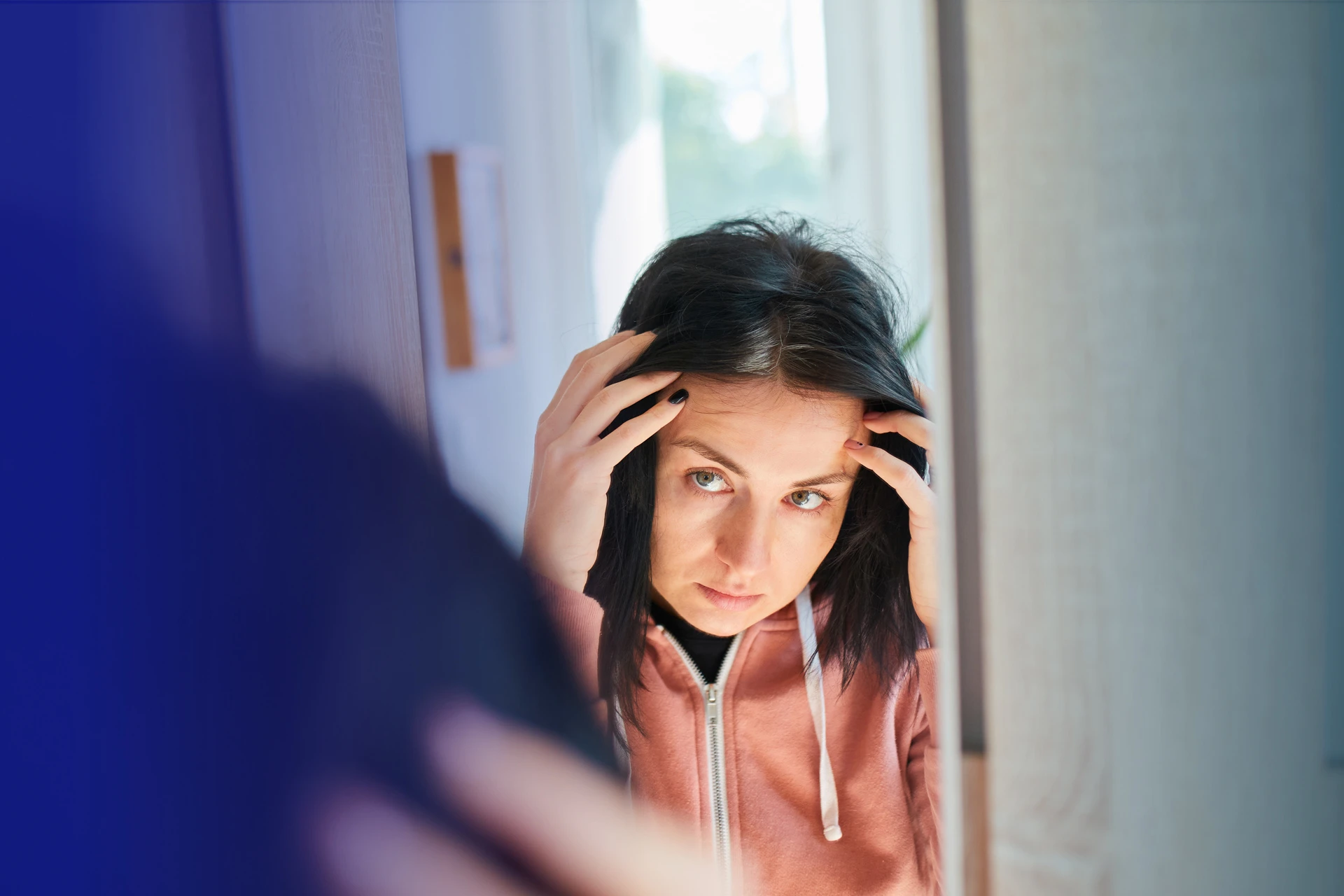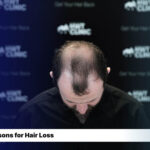
Table Of Content
Although it is currently not possible to reverse greying of hairs with modern techniques, recent studies and advancing technologies provide hope that it will be possible to reliably slow and reverse hair greying, as we understand the mechanisms behind it. In addition, there are some dietary and lifestyle changes which may assist to slow graying of hair in most cases. If you’re wondering how to get rid of grey hair, options range from natural remedies to professional treatments like coloring.
Grey hairs are a visible sign of aging, and like wrinkles there is nothing wrong with that. It’s a natural part of life. While some celebrate the grays as a sign of maturity and wisdom, there are others who feel that it lacks the luster of a more youthful appearance. When and how much our hair turns gray is influenced mostly by the genes we inherit from our biological parents. Grey hair is a combination of normally pigmented hairs interspersed with white ones.
Most gray hair is not directly related to stress for humans. Actually the hair itself does not change color to become gray. Once a hair follicle produces hair in its life cycle, the color is set. Unless the hair is dyed to another color, that will not change its color. Human hair follicles have less melanin and as such produce less color as they age. As such, when hair repeats its natural cycle of dying and being regenerated it is more likely to grow gray. Even though this becomes more likely after the age of 35 on average, hair graying can start to happen during late teens and early 20’s.
As International medical studies have recently confirmed and proved, hair greying has both a genetic component and an environmental component. It has been known that several genes are involved both in balding and hair colour but this study held by UCL Cell & Developmental Biology is the first one that identified a gene for greying in humans, along with other genes influencing hair shape and density. The findings from this study have potential forensic and cosmetic applications as our knowledge on how genes influence the way we look increases.
The gene identified for grey hair – IRF4 – was already known to play a definite role in hair colour but this study concludes for the first time that it is also associated with the greying of hair. IRF4 gene is involved in regulating production and storage of melanin, the pigment that determines hair, skin and eye colour. Hair greying is caused by an absence of melanin in hair. As such studies are being held to figure out exactly what IRF4’s role is in this process. Understanding how this gene regulates the hair greying may help the development of new cosmetic applications that may slow or block the greying of hair.
As less and less melanin is produced to be used by the follicles, hydrogen peroxide builds up in the hair itself, naturally produced by the body’s cells. Usually an enzyme called catalase breaks down hydrogen peroxide into water and oxygen, but as people get older, catalase production starts to slow down.
Even though being under stress will not turn one’s hair gray, stress and similar environmental factors can trigger a relatively common condition called telogen effluvium, which causes hair to shed about three times as fast as normal rate. This hair grows back quickly, so the condition does not cause balding, but each time the hair sheds and regenerates, less melanin is used, and more grey strands are produced. This condition may lead to premature aging of hair follicles.
The hair grows back, so the condition doesn’t cause balding. But if you’re middle-aged and your hair is falling out and regenerating more quickly because of stress, it’s possible that the hair that grows in will be gray instead of its original color. In addition to this, a recent study on mice has revealed that hyperactivation of nerves due to stress also depletes melanocyte stem cells, the cells at the base of hair follicles that produce color, and again leads to graying.
When graying occurs at a younger age, it usually indicates a medical condition or illness. Vitamin B12 deficiency; Von Recklinghausen’s disease, that is neurofibromatosis which causes tumors to grow along nerves in addition to abnormal bone and skin development; tuberous sclerosis, which is an uncommon and inherited genetic condition which causes usually benign tumors in the brain, heart, kidneys, eyes, lungs, skin and other organs; thyroid disease; diabetes; vitiligo, which causes melanocytes to be lost or destroyed usually because our own immune system backfires and attacks those cells rather than an infection; and alopecia areata, a disorder in which patches of usually non gray is lost, making gray or white hairs more obvious.
Hormonal and nutritional factors and personal stress levels do affect hair colour but, by and large, the predisposition to go grey earlier or later in life is genetic. As such, since genetic modification technologies and techniques are not advanced enough yet, the safest way to control graying hair for a human is to control stress levels and nutritional intake of daily diet.
Human hair can be seen as an early warning system for general health. Any improvements made to the wellbeing of a person can usually be observed on the quality of the hair a human has. A well-balanced diet rich in carbohydrates, proteins, vitamins and minerals are great for hair growth.
Hair consists of a protein called keratin. This protein is very important for maintaining some strong and healthy hair. Proteins consist of essential and non-essential amino acids. Essential amino acids can be found more in animal protein and can be more easily absorbed from animal proteins. As such foods like eggs and fish are all primary sources of protein with essential amino acids.
From time to time deficiencies of calcium, copper, iron, magnesium, selenium, zinc, vitamin A, vitamin D, vitamin E, B12 and B6 can form if we are not careful with our nutritional intake and do not follow a balanced diet. As such, it is important to eat foods that contain these vitamins and minerals which play important roles in the growth and repair of hair. Especially vegans and vegetarians may find it necessary to take some of these in supplemental form. A multivitamin supplement that contains Omega 3 may help fight against early onset of grey hairs. These will also have a moisturizing effect, which may reduce dandruff and itching. In addition to this copper supplements may prevent the onset of greying hair by providing a boost to melanin production. Always ask a doctor before starting a new supplement. Some medications may have unintended side effects when combined with supplements.
Human body requires regular exercise. Shampooing hair once a day means that a person is also massaging the scalp, which in turn results in a cleaner, fresher and healthier scalp. This will also increase the blood flow to the hair, and better fed hair follicles.
As smoking can damage and shrink hair follicles, thus reducing the duration of their lifecycle, stopping smoking will improve both your hair’s and your own health in general. In addition, certain actions such as bleaching, using a brush instead of a wide-toothed comb with wet hair, applying too much heat with a curling iron or hair dryer, or using harsh shampoos may damage hair and cause the follicles to begin the regeneration process more often.
It has been suggested that using natural remedies such as massaging with coconut oil, eating one tablespoon of honey mixed with a teaspoon of grated ginger, drinking some fresh amla juice, also known as indian gooseberry, eating black sesame seeds, drinking carrot juice, applying onion juice to the scalp, eating foods rich in catalase enzyme such as garlic, cabbage, sweet potato, broccoli and almonds can help with slowing the graying of hair.
Adequate resting and frequent exercise is also important to slow down graying of hair. If all else fails, it is always possible to dye and color one’s hair. Because many people ask, “Can grey hair be reversed?” and while some natural methods may help, there is no guaranteed way to restore your original hair color permanently. But care must be taken to use dyes that are not harsh or damaging to follicles themselves to avoid speeding up of graying or causing loss of hair. Also, some believe it’s possible to reverse gray hair naturally through a healthy diet, stress management, and the use of certain herbal supplements.




